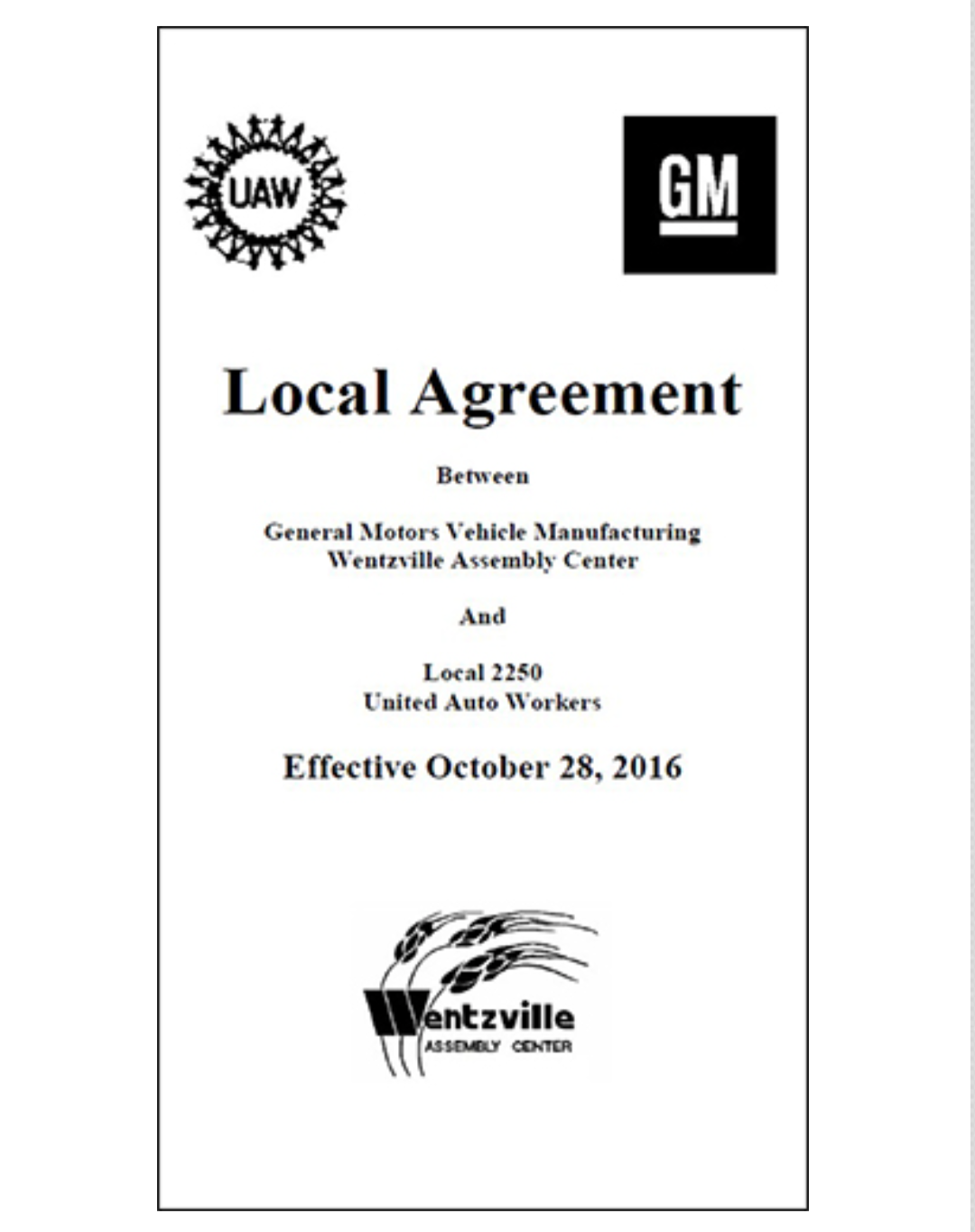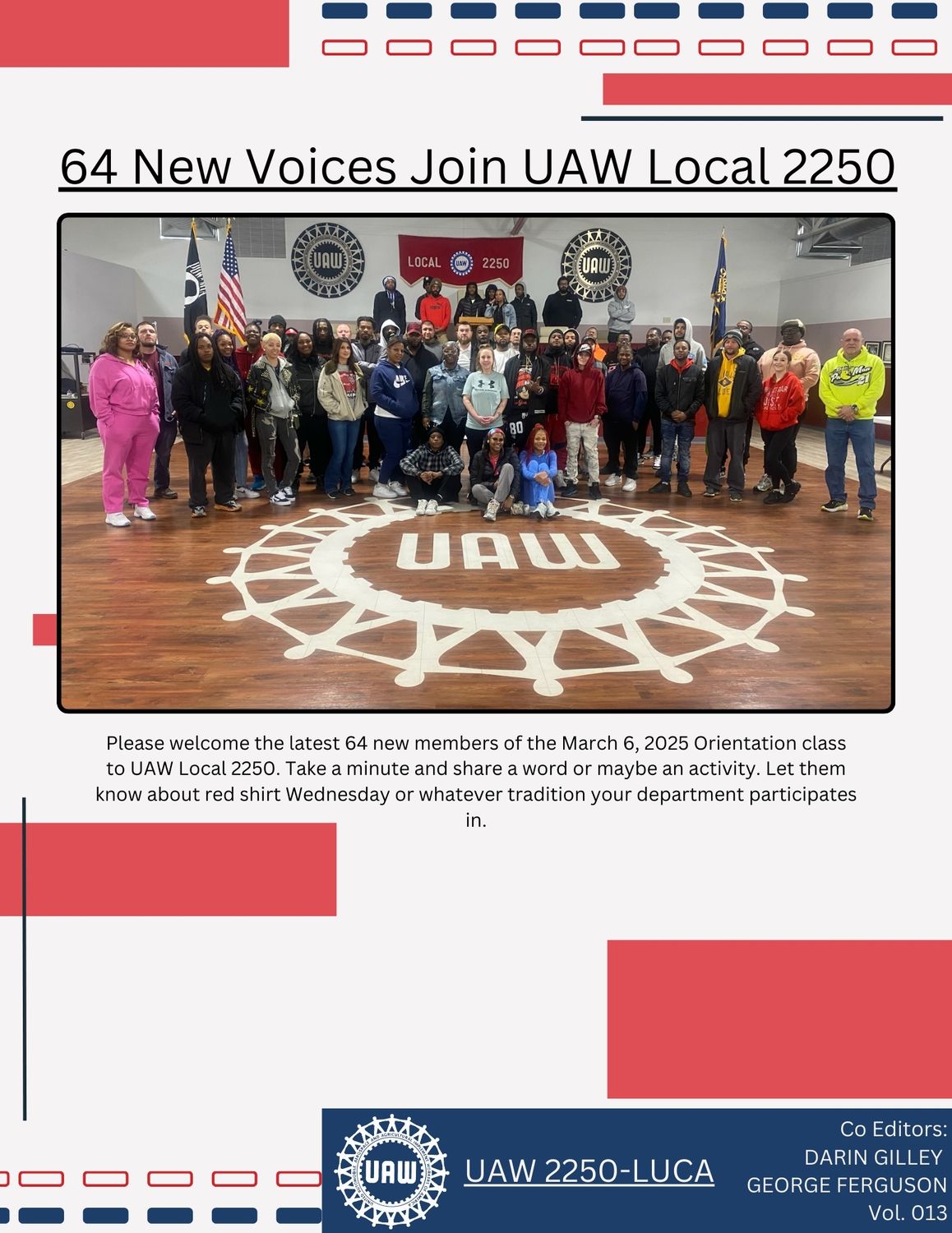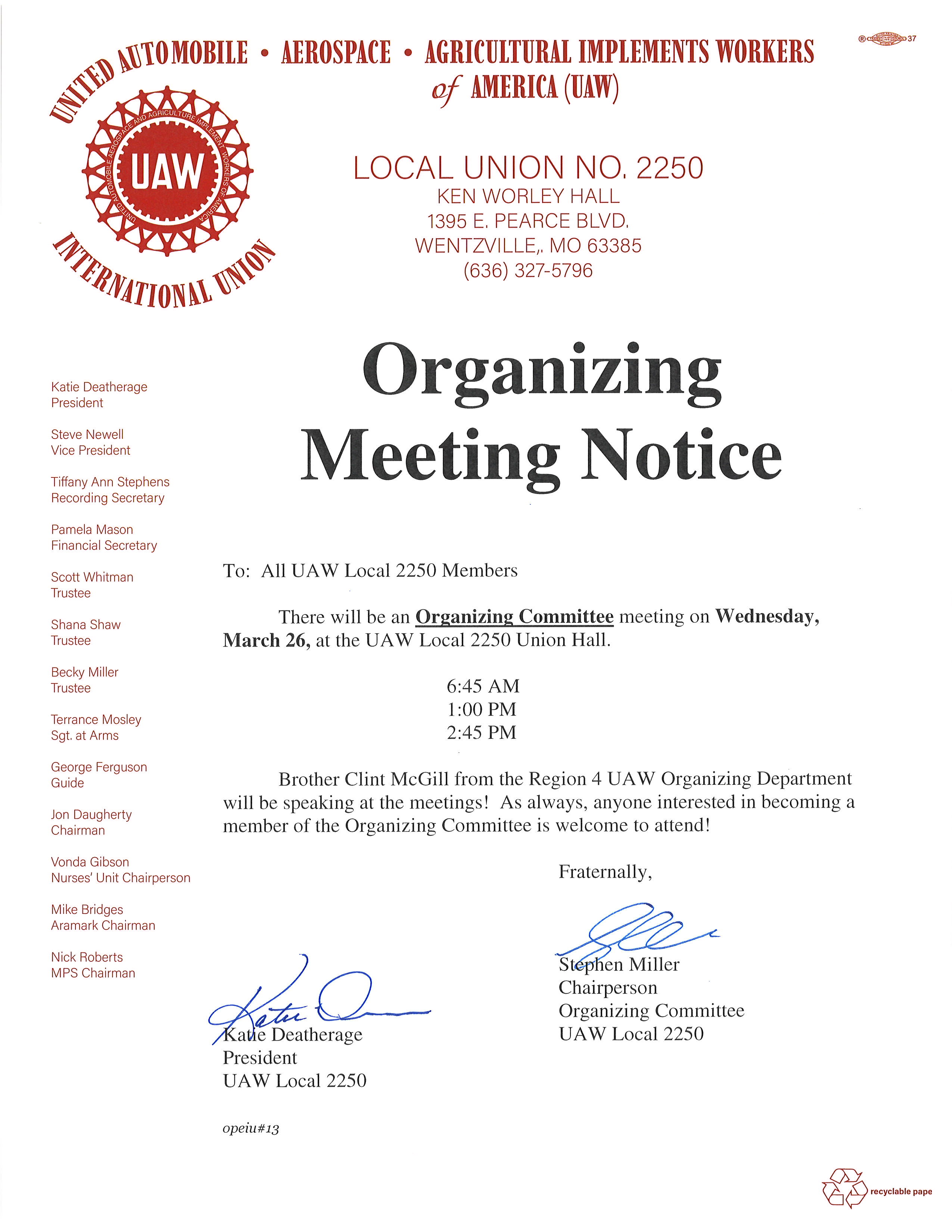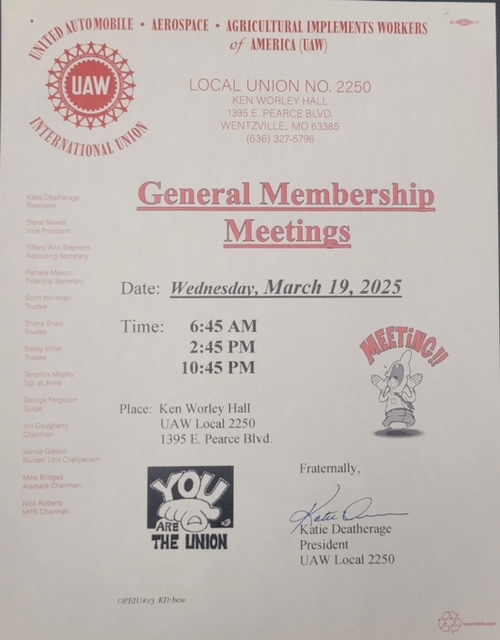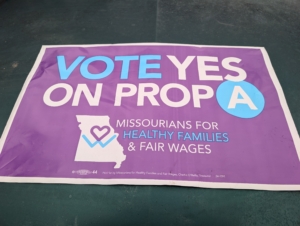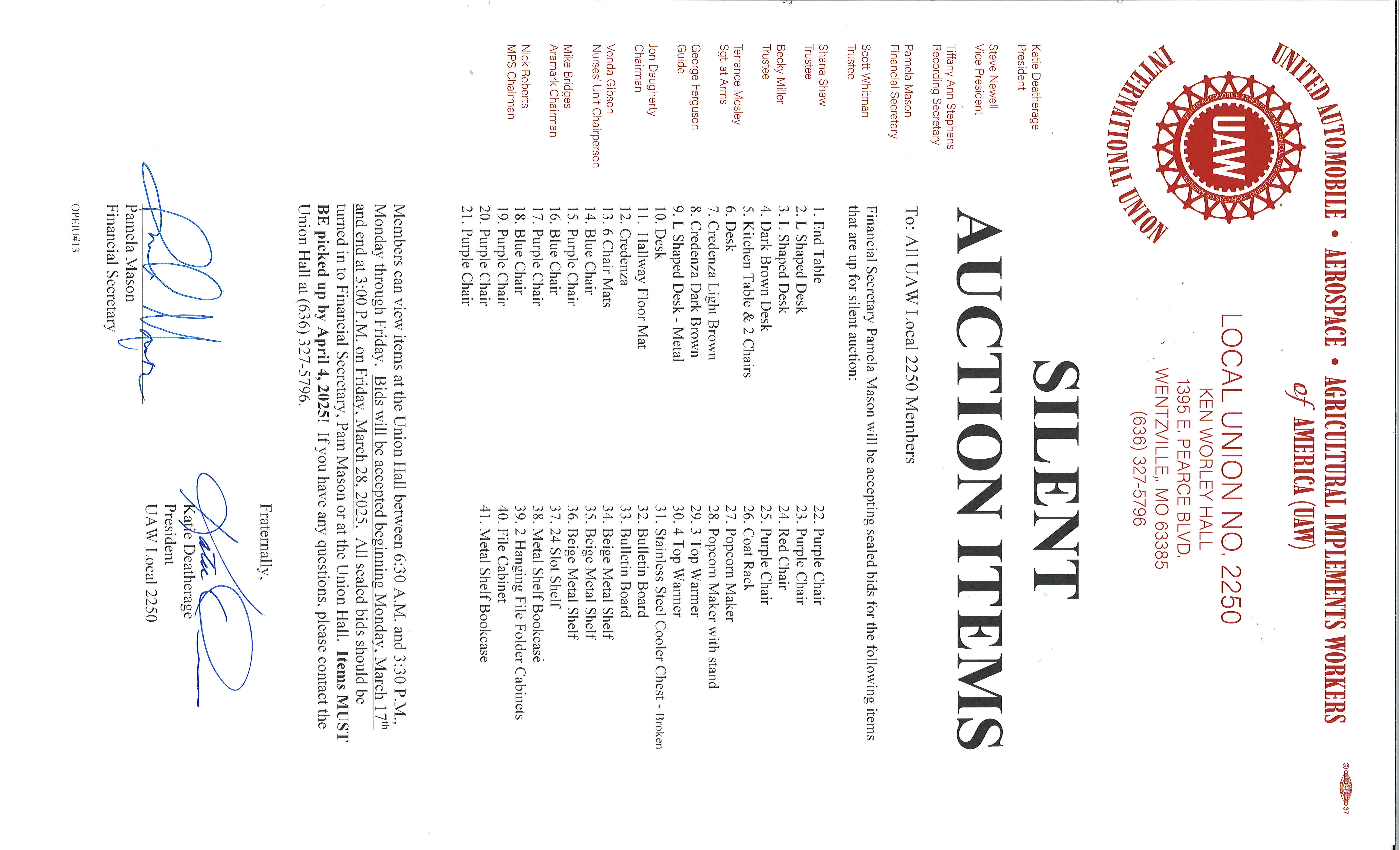-
Look At This: Your 401k Will Be Richer In One Contract Than Most Americans - 13 hours ago
-
You Can Carry Your UAW/GM Wentzville Local Agreement 24-7-365 - April 1, 2025
-
Did Your Bid Win? - March 31, 2025
-
Shawn Fain, Trump, and Tariffs: What’s The Truth? - March 30, 2025
-
Guest Opinion: Lawmakers Shouldn’t Undermine Missouri Voters - March 29, 2025
-
April Showers Bring More Activities! - March 28, 2025
-
The 2025 Missouri AFL-CIO Joint Legislative Report - March 27, 2025
-
P2: Phased Retirement For Tier 2/Progressive Members – A New Trend? - March 23, 2025
-
Sunday Guest Opinion: Education Department Cuts Damage The Working Class - March 22, 2025
-
Newsline #13: New Members, Paid Leave, and The State Capitol! - March 21, 2025
Illinois Adds Worker Rights To State Constitution, So Should Missouri
The St. Louis Labor Tribune carried this opinion piece, Illinois Workers’ Rights sets new bar for state worker power policy. Missouri are you listening?
On election day, Illinois voters approved a constitutional amendment guaranteeing all workers organizing and collective bargaining rights, setting a new high bar for state labor policy at a moment when policymakers should prioritize empowering workers to address historic levels of income inequality and unequal power in our economy.
The Illinois Workers’ Rights Amendment adds language to the state constitution affirming that “employees shall have the fundamental right to organize and to bargain collectively through representatives of their own choosing for the purpose of negotiating wages, hours, and working conditions, and to protect their economic welfare and safety at work.” The new clause also specifies that “no law shall be passed that interferes with, negates, or diminishes the right of employees to organize and bargain collectively.”
The amendment’s expansive language creates a legal backstop against two persistent lines of state legislative attack on U.S. workers’ basic rights to unionize:
- Threats to repeal or erode public-sector workers’ collective bargaining rights.
- Threats to constrain private-sector workers’ collective bargaining rights with so-called “right-to-work” (RTW) restrictions.
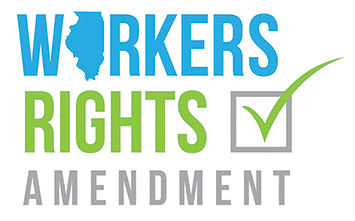
(graphic via Labor Tribune)


